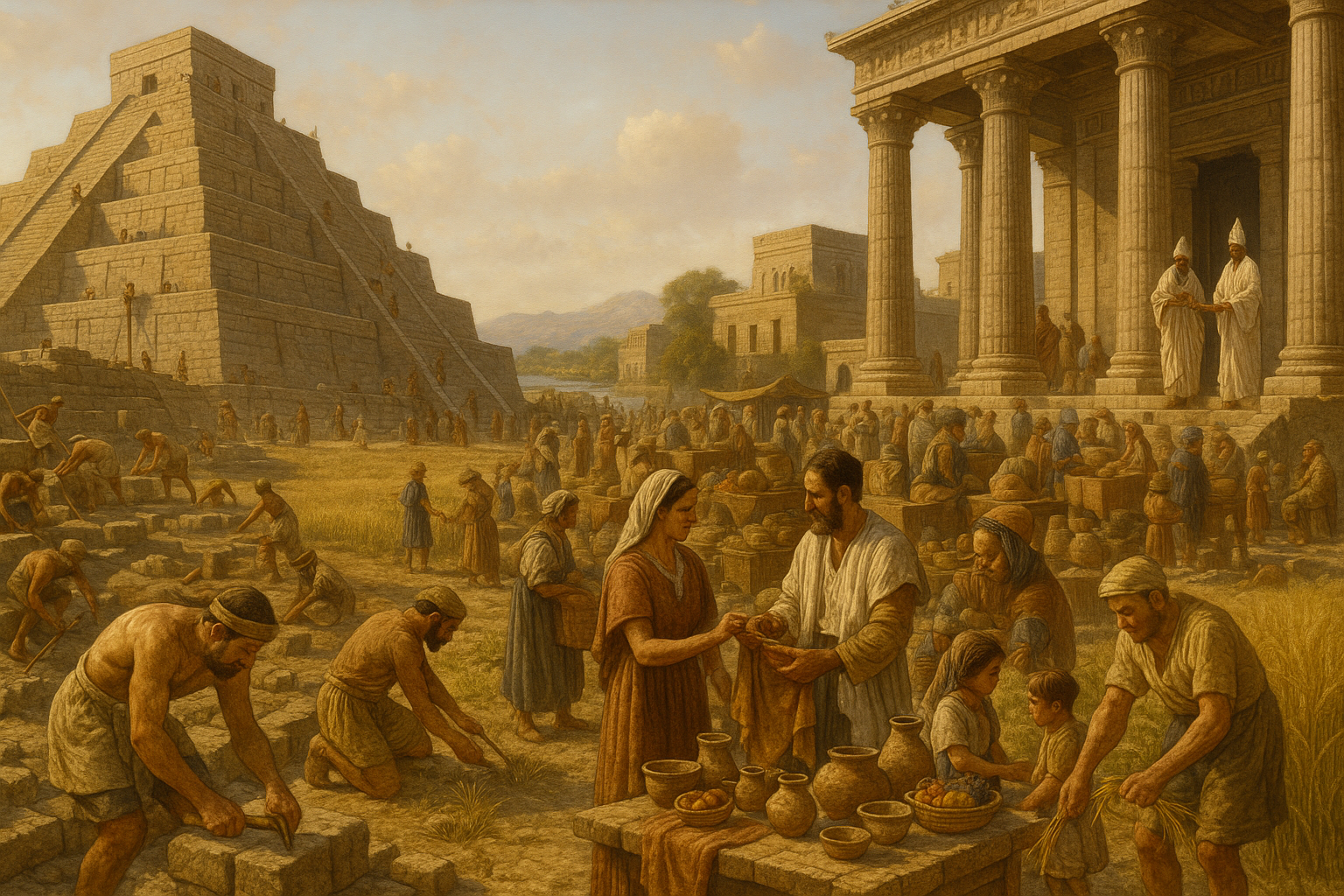In the vast tapestry of human history, where civilizations rise and fall and cultural landscapes shift like desert sands, there is a thread that weaves through the ages with unyielding resilience: the art of poetry. From the ancient epics of Homer to the profound verses of Maya Angelou, poetry has served as both a mirror and a torch, reflecting the complexities of its time while illuminating paths for future generations. 🌟 In this blog post, we embark on an enchanting journey through time, exploring how poetic verses have preserved our history, shaping the way we perceive the world and ourselves.
Imagine standing in the bustling agora of ancient Greece, where storytellers would recite the Iliad and the Odyssey, not merely as entertainment but as a means of preserving history, culture, and moral lessons. Poetry, with its rhythmic cadence and evocative imagery, transforms mundane historical records into vibrant narratives that capture the imagination and linger in the memory. This oral tradition was not confined to Greece; across continents, in various forms and languages, societies relied on poetry to record events, celebrate victories, and mourn losses. It is this universal reliance on poetic expression that speaks to its unparalleled power to transcend time and geography, connecting us to our ancestors and their experiences.
As we traverse through this exploration, we’ll delve into several captivating examples of how poetry has served as a historical vessel. From the resonant echoes of the African griots to the poignant haikus of Japan, each culture has harnessed the power of verse to encapsulate its essence and endurance. 📜 Furthermore, we’ll examine how these poetic traditions have adapted and evolved, embracing new forms and mediums in the digital age. With the advent of social media, the tradition of using poetry as a means of historical preservation is experiencing a renaissance, as contemporary poets reach global audiences with a mere click. This modern-day revival raises intriguing questions about the future of poetry and its role in documenting our shared human experience.
But what makes poetry such an effective tool for preserving history? At its core, poetry distills complex emotions and events into concise and impactful language. Its reliance on metaphor, symbolism, and rhythm enables poets to convey deeper truths that resonate across time. Through an exploration of literary techniques and their historical significance, we’ll uncover the nuances that give poetry its timeless quality. Whether it’s through the allegorical layers of Dante’s Divine Comedy or the raw, unfiltered emotion of Sylvia Plath’s work, poetry possesses a unique ability to capture the essence of its era while speaking to universal human experiences.
The Timeless Influence of Rhyming Verses in History
From the epic tales of Homer to the poignant sonnets of Shakespeare, rhyming verses have been a foundational element of storytelling across cultures and eras. The ability of poetry to capture the essence of human experience in a few succinct lines makes it a unique vehicle for preserving history. Through rhythm and rhyme, poets have chronicled events, conveyed emotions, and transmitted cultural values that might otherwise have been lost to time. The structure and memorability of rhyming verses ensure that they are passed down through generations, becoming an integral part of our collective cultural memory.
Historically, poetry has served as an oral tradition in many cultures, allowing stories and important events to be passed down even before the advent of written language. In ancient civilizations, bards and storytellers were revered figures who used poetic devices to entertain and educate their audiences. The use of rhyme and meter made these stories easier to remember and recite. As writing systems developed, these oral traditions were transcribed, preserving them for future generations. This transition from oral to written form has allowed poetic works to influence societies across centuries, maintaining their relevance even in the modern age.
In addition to preserving history, rhyming verses have also played a crucial role in shaping it. During times of social or political upheaval, poets have used their craft to inspire change and rally support for various causes. The power of poetry lies in its ability to convey complex ideas and emotions in a relatable and impactful way. By encapsulating the spirit of an era, rhyming verses have often become rallying cries for movements seeking to challenge the status quo or promote reform. This dual role of preserving and shaping history underscores the enduring significance of poetic verses throughout time.
Rhyming Verses as Cultural Artifacts
Rhyming verses are more than mere reflections of the societies from which they originate; they are cultural artifacts that offer insights into the values, beliefs, and concerns of their time. By examining poetry from different historical periods, we can gain a deeper understanding of how people in those eras viewed the world and their place within it. Poets often infuse their work with contemporary issues, whether they be personal struggles or broader societal challenges, providing a window into the zeitgeist of the time.
The universality of themes in poetry—such as love, loss, conflict, and nature—allows rhyming verses to transcend cultural and linguistic boundaries. Despite the diversity of human experience, these themes resonate with people across different backgrounds, highlighting the shared aspects of our existence. This universal appeal contributes to the enduring nature of poetry, ensuring that it continues to be relevant and impactful, even as society evolves.
Moreover, the form and structure of rhyming verses can vary significantly between cultures, offering additional insights into their distinctive aesthetic preferences and artistic traditions. For instance, the structured elegance of a Shakespearean sonnet contrasts with the flowing spontaneity of a Sufi ghazal. By studying these differences, we can appreciate the rich tapestry of human creativity and the myriad ways in which people have expressed their innermost thoughts and feelings through poetry.
The Role of Poetry in Education and Memory
In the realm of education, poetry has long been recognized as a powerful tool for enhancing memory and learning. The rhythmic and repetitive nature of rhyming verses makes them particularly effective in helping individuals retain information. This mnemonic quality is why poetry is often used in educational settings to teach language, history, and other subjects. By engaging both the auditory and cognitive faculties, poetry aids in the retention of knowledge, making it a valuable asset in both formal and informal learning environments.
Beyond the classroom, rhyming verses play a crucial role in the cultivation of language and communication skills. The careful selection of words and the attention to rhythm and meter encourage a deep appreciation for the nuances of language. This linguistic awareness fosters creativity and self-expression, empowering individuals to articulate their thoughts and emotions more effectively. As a result, poetry not only enriches the mind but also enhances the ability to engage with the world around us.
| Approach | Benefits | Challenges |
|---|---|---|
| Poetry Memorization | Improves memory retention, enhances linguistic skills | Time-consuming, may not appeal to all students |
| Creative Writing | Encourages self-expression, fosters creativity | Requires guidance to develop technical skills |
| Performance Poetry | Boosts confidence, enhances public speaking skills | Can be intimidating for some students |
As illustrated in the table, while poetry offers numerous educational benefits, it also presents challenges that educators must navigate to ensure that all students can fully engage with and appreciate this art form. By incorporating diverse approaches, teachers can create an inclusive learning environment that caters to a wide range of interests and abilities.
Engaging with Poetry in the Digital Age
In the digital age, the accessibility of poetry has been greatly enhanced by online platforms that enable poets to reach a global audience. Websites, social media, and video-sharing platforms like YouTube have democratized the creation and consumption of poetry, allowing voices from all walks of life to be heard. This increased accessibility has led to a resurgence of interest in poetry, particularly among younger generations who are using digital media to explore and express their creativity.
For a deeper dive into the modern impact of poetry, watch this insightful video: “The Power of Poetry in the Digital Age” by [Channel Name]. 📺
Explore the diverse ways in which poetry can be used in education.
Consider the historical significance of rhyming verses in preserving cultural heritage.
Reflect on how digital platforms are transforming the poetry landscape.

Conclusion
In conclusion, the exploration of “Rhyming Through Time: How Poetic Verses Preserve Our History for Generations to Come” unveils the profound impact that poetry has had on preserving the essence of human experiences across ages. Throughout the article, we delved into various facets of poetry’s role in historical documentation, cultural reflection, and its unique capacity to capture the nuances of human emotion and thought.
Firstly, we examined the historical significance of poetry, tracing its roots back to ancient civilizations where it served as a primary medium for recording events and narratives. From the epic tales of Homer to the poignant sonnets of Shakespeare, poetry has been instrumental in shaping our understanding of different eras, offering insights into the social, political, and personal lives of those who came before us. This timeless art form has acted as a bridge, connecting past to present and ensuring that the voices of history are not lost to time.
We also highlighted the cultural importance of poetic expressions, emphasizing how they reflect societal values and collective identities. Poetry has the unique ability to encapsulate the spirit of a culture, preserving linguistic nuances, traditions, and folklore. It allows for the transmission of cultural heritage, ensuring that future generations remain connected to their roots. This aspect of poetry as a cultural custodian underscores its enduring relevance in a rapidly changing world.
Moreover, we explored the emotional resonance of poetry and its power to articulate the human condition. Through carefully chosen words and rhythmic patterns, poets have the ability to evoke deep emotions, provoke thought, and inspire action. Poetry’s capacity to convey complex feelings in a condensed form makes it an accessible and profound medium for personal and communal expression. It acts as a mirror to our souls, reflecting our joys, sorrows, hopes, and fears, thereby fostering empathy and understanding among diverse audiences.
The article also addressed the evolving nature of poetry in the digital age, where technology offers new platforms for poets to share their work with a global audience. This democratization of poetry has led to a resurgence in its popularity, as people from all walks of life find solace and inspiration in verses that speak to contemporary issues and timeless themes alike. The accessibility of poetry online ensures that its legacy continues to thrive, reaching new readers and inspiring future poets.
The significance of poetry in preserving history, culture, and emotion cannot be overstated. It serves as a testament to human resilience and creativity, offering a unique lens through which we can view the world and our place within it. As we move forward, it is crucial to recognize and celebrate the vital role that poetry plays in our lives, encouraging its integration into educational curriculums and daily practices.
In light of these insights, we invite you, dear reader, to engage with poetry in a more profound way. Whether it is by writing your own verses, exploring diverse poetic works, or sharing your favorite poems with others, you can contribute to the perpetuation of this rich tradition. Let us harness the power of poetry to preserve our collective history and inspire future generations.
We encourage you to share your thoughts and reflections on this topic. What poems have resonated with you and why? How do you see poetry shaping our understanding of history and culture? Join the conversation by leaving a comment below. Additionally, consider sharing this article with others who may be interested in exploring the timeless art of poetry.
For further reading on the impact of poetry throughout history, you can explore resources such as the Poetry Foundation’s and the Academy of American Poets’ archive. These platforms offer a wealth of information on poetic works and their historical significance, providing opportunities to deepen your appreciation for this captivating art form.
As we conclude, let us be reminded of the words of poet Rainer Maria Rilke: “The only journey is the one within.” Through poetry, we embark on this inner journey, discovering the beauty of language and the timeless stories it holds. May this exploration inspire you to embrace the power of poetic verses in preserving our history for generations to come. 🌟
Toni Santos is a visual storyteller and experimental artisan whose work explores the strange frontiers where science meets art. Fascinated by the forgotten, the obscure, and the wonderfully absurd, Toni brings bizarre scientific experiments to life through provocative visual narratives and handcrafted creations that blur the line between curiosity and discovery.
His journey is rooted in a passion for the eccentric side of science — from electric shocks on cadavers to botany in hostile environments, from Victorian medical oddities to animal behavior gone rogue. Each project Toni undertakes sheds light on real (and sometimes questionable) scientific ventures that push the boundaries of human understanding.
With a background in visual design and hands-on craftsmanship, Toni blends artistic precision with conceptual boldness. His creations aren’t just decorative — they provoke, disturb, and invite the viewer to reconsider what counts as science, progress, or even sanity. Often inspired by true experiments — like galvanic resurrection, psychological endurance tests, or 19th-century pseudo-science rituals — Toni’s work reanimates these bizarre chapters of history with aesthetic intrigue and critical reflection.
As the creative force behind Vizovex, Toni invites you to explore a world where the strange becomes symbolic, the grotesque becomes beautiful, and every experiment tells a story worth unearthing.
His work pays tribute to:
The brilliant madness of forgotten experiments
The symbolic power of science at the edge of reason
The beauty in questioning what we think we know
Whether you’re a curious mind, a lover of scientific history, or simply drawn to the uncanny, Toni welcomes you to explore a realm where aesthetics and absurdity collide — one experiment, one mystery, one creation at a time.





